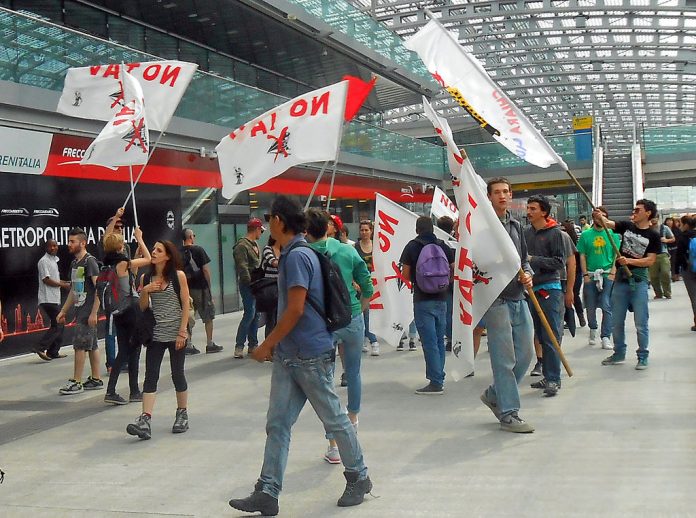The Italian government and public opinion are once again split over the continuation or discontinuation of the works for the Valsusa Tunnel.
Italian and French Green parties and activists have always cooperated in staunch opposition to the project.
“The Italian government has put the works for the Valsusa Tunnel under review. It must now close this useless project once and for all, on the basis of objective considerations in terms of transport needs, costs and environmental impacts, and not of ideological approaches,” stated the European Green Party co-chair Monica Frassoni and French Green MEP and Chair of the Committee on Transport and Tourism Karima Delli.
“From the original project of a 270 km-long high-speed line, what remains today is the 57.5 km-long Valsusa Tunnel, as there are no longer any discussions of a new railway line. The original project had been approved based on traffic estimates that have largely been exaggerated: between 1980 and 2000, the traffic on the existing line was 7-10 million tonnes, which today has been reduced to 3 million tonnes. Moreover, most of the traffic is moving North-ward, towards Switzerland and Austria rather than France. Nor can there be any justification in maintaining the Valsusa Tunnel project to avoid incurring in penalties with the European Union. The EU had only decided to fund preparatory works for €813 million, in relation to the 2014-2020 budget. The funds are clearly insufficient to finance the whole project, but no decision yet has been taken concerning a new approval for the 2021-2017 budget. This means that no new funds have yet been allocated and no penalty ought to be paid,” they added.
“Neither Italy nor France needs this tunnel, which is completely unnecessary taking into consideration the state of affairs of Alpine transport and objectives for sustainable mobility. What is instead possible and necessary is to ameliorate the existing railway line (through targeted interventions to improve capacity and loading efficiency), which has a potential of 20/21 million tonnes per year. There is no economic or environmental justification for the construction of an additional tunnel, when the current line can be used. Before the final decisions on the multiannual financial framework are taken, it is still possible to reopen – at Italian, French and EU level – a discussion on how to best ensure an effective and sustainable railway transit without this tunnel, and on reserving more resources instead for sustainable jobs and green innovation,” state Frassoni and Delli.

